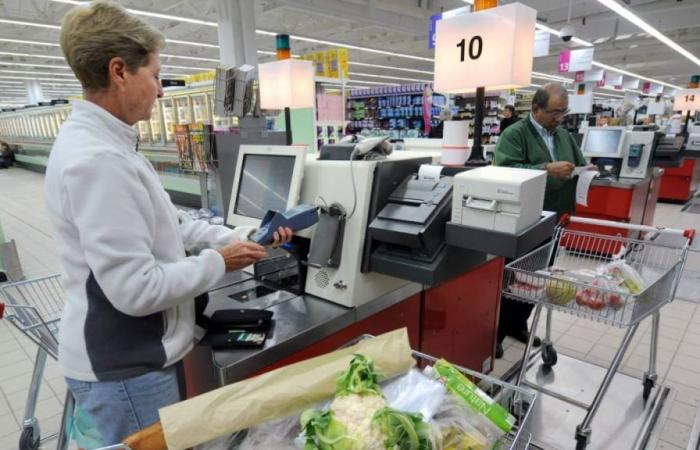To combat theft, supermarkets will soon be able to rely on intelligent cameras, in particular.
We love them or we hate them, but they are part of our daily lives: supermarket self-checkouts have just celebrated their 20th anniversary. And they are starting to equip themselves with new features to detect fraudsters. Because that remains the weak point of automatic checkouts: theft, very tempting when you are alone in front of the machine and difficult to detect. Pretending to scan a product or “getting the wrong” label, weighing chanterelles at the price of carrots for example… Moreover, some people even clear their conscience by doing so, by telling themselves that since it is he who does the cashier’s job, he deserves a little discount. This will all be over soon.
The supermarkets are fed up – we can understand them – and are starting to test new generation checkouts, particularly in the Var as reported by Le Parisien. Checkouts equipped with anti-theft cameras. Concretely, these are intelligent on-board cameras which will film the customer’s hands when they take their shopping out of the basket and scan them and detect any suspicious movement. The system is rather soft, in the sense that it is not a security guard who will jump on you if you forget. The first step is that the terminal will display a message ‘are you sure you haven’t forgotten anything?’. If you don’t do anything, the cash register freezes and an operator comes to see what’s going on. Quite a deterrent.
We can’t stop progress: Supermarkets, soon anti-theft checkouts – 02/10
Biometric cameras to detect suspicious behavior
And it’s not just cash register fraud. Thefts from the shelves are increasing. But here too, technologies are evolving. Like biometric cameras, which will detect suspicious behavior on their own. They are already deployed in dozens of supermarkets in France, even if you don’t know it… You have the eyes (the camera) and the brain (the artificial intelligence software). This camera will look for behaviors that may correspond to that of a person who shoplifts. Look around furtively, look for where the cameras are, and obviously grab a product and put it in your pocket.
This solution would reduce shoplifting by 40%. Even if it doesn’t work every time… For example, a customer who is a little too indecisive, who takes a product, puts it down, takes it again, this can be considered suspicious behavior. Or even special trolleys, equipped with sensors and cameras that will analyze all your gestures and possible attempts at fraud. If you tried to replace a product with a more expensive one, for example, the cart will understand this. And if theft is suspected, the images are sent in real time to security guards, without the customer realizing it.
Cameras that identify already known thieves
The question behind it is that of legality. We still film people without their knowledge. And what is a little unpleasant is that we consider every customer as a potential suspect since, even if the customer is blurred in the images, he is recorded without his knowledge. Moreover, the CNIL was moved by this. We are in the field of algorithmic surveillance, tested in particular during the Olympics, with cameras capable of detecting suspicious behavior and crowd movements, without identifying people. We are still very far from American standards. Because we remain small players compared to what is done in the United States.
Walmart supermarkets tested, before dismantling them, surveillance cameras capable of identifying already known thieves among the crowd of a supermarket. Cameras equipped with facial recognition software developed by a company called FaceFirst. The face of each customer is scanned in real time – 16,000 unique points in total – and compared to a database which lists those who have already been spotted by store security during a previous visit. Clearly, if you have already stolen, you are registered and immediately spotted by the cameras, which will then notify the security agent, who immediately receives an alert on his smartphone with the procedure to follow. Some will say that if we have nothing to reproach ourselves for, we risk nothing. But we are right on this question: should we accept being increasingly monitored if it can provide a little more security?






